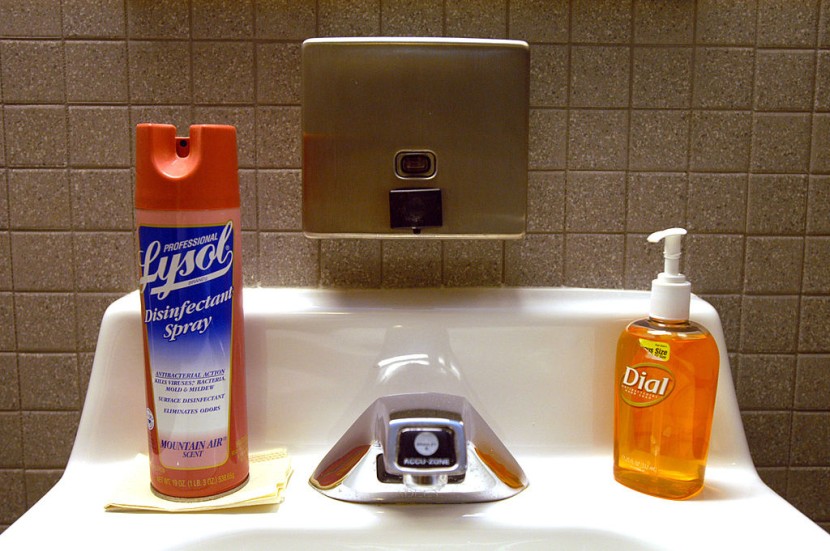
After several clinical trials, two disinfectant products by Lysol has been acknowledged by the United States Environmental Protection Agency (EPA) as proven effective in preventing SARS-CoV-2, the causative agent of COVID-19 from thriving on surfaces.
In a statement from the EPA on Monday, it was announced that Lysol Disinfectant Max Cover Mist and Lysol Disinfectant Spray have met the agency's criteria for usage against the novel coronavirus. Several laboratory tests have resulted in conclusions that found both products being able to kill the virus in hard and non-porous surfaces in just two minutes.
According to CNN, the aforementioned Lysol products were the first disinfectants that were tested directly against SARS-CoV-2 which proved effective. The EPA has previously stated that there are already 420 disinfectants that are strong enough to kill viruses which are harder to kill than SARS-CoV-2, however, the majority have not been tested directly against the virus yet.
After the announcement, Lysol also released a statement and said that they are currently working on improving and testing the efficacy of their other disinfectants against COVID-19, CBS reported.
The Executive Vice President of Lysol's Parent Company Reckitt Benckiser in North America, Rahul Kadyan said that amid the global health crisis Lysol is continuing its work with a wide range of health experts and scientists in order to inculcate the importance of hygiene to the public.
News about the Lysol products' effectivity against the killer virus followed the statement from the Centers for Disease Control and Prevention (CDC) last month that people have been cleaning more since the pandemic started but only 50% of them know how to properly disinfect, clean and protect their homes. Thus, the CDC recommended that people should always follow the instructions on the labels of disinfectants that they purchase.
Read also: Fact Check: Does Wearing Face Mask Causes Oxygen Deficiency?
COVID Transmission Through Surfaces
It has been noted by most experts that people especially health practitioners should not overlook the fact that SARS-CoV-2 can be transmitted via fomites.
Fomites are objects that can be contaminated with viruses and may facilitate its transmission from one person to another.
Back in March until April, a study looking into the coronavirus outbreak was done by a team of researchers in a university hospital located in Durban, South Africa. Based on the study, the researchers were able to find that what mostly contributed to the transmission of the virus is hand-to-hand contact and from highly touched surfaces through fomites.
According to the researchers, the SARS-CoV-2 can thrive in surfaces including plastics and stainless steel. This is also supported by another research which was published in the New England Journal of Medicine.
The researchers further stated that as the virus is so easily spread even in the health care environment necessary precautions should be taken so that the virus will not find any gap in the prevention and control measures.
Thus, the CDC has also recommended that disinfecting surfaces and keeping them sanitized may help curb the spread of COVID-10, making the latest announcement from the EPA very important in the combat against the pandemic.
Related article: Excessive Drinking May Increase Coronavirus Threat
© 2026 HNGN, All rights reserved. Do not reproduce without permission.








